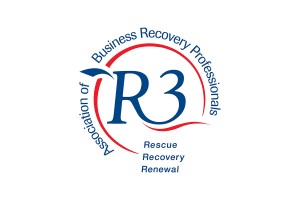An eight-point checklist to help owner-managers deal with the impact of the coronavirus pandemic on their businesses has been launched by the South West arm of insolvency and restructuring trade body R3.
The organisation’s members, who include insolvency practitioners, lawyers, and turnaround and restructuring experts, work with business owners to mitigate and resolve financial challenges, often without the need to resort to formal insolvency procedures. 
R3 South West chair Philip Winterborne, pictured below, a partner at Temple Bright solicitors in Bristol, is urging the region’s directors to act quickly if they see issues arising, rather than ignoring them and hoping for the best.
He said: “The pandemic has obviously had an unprecedented impact on large swathes of the regional economy, and even when the health implications have been overcome, the financial ramifications will very much still be there.
“By taking a planned, structured approach to dealing with what’s facing them, company directors will give themselves the best chance of both surviving in the short-term and thriving as time goes on.”
R3’s checklist for dealing with the business impacts of Covid-19 is:
- Form an emergency response committee: Agree who will decide how your business responds to changes in circumstances, new information and guidance from the government and the health authorities and changing customer needs.
- Know your cashflow: Make sure you have your cashflow figures to hand and maintain short-term weekly cashflow forecasts so you can identify and prioritise outgoings.
- Begin negotiations with suppliers and/or creditors: Open negotiations to see if they will accept new terms or deferred payment plans if needs be. An upfront conversation with suppliers and creditors will give you a clear picture of what you need to pay, who you need to pay it to, and when you need to pay it by.

- Check your eligibility for government support: The government has announced a range of support measures for businesses, and a number of banks have also said they will look at business customers’ debts. Explore what you’re eligible for and how you can access it.
- Keep on top of employment contracts: Changing circumstances and new ways of working may mean directors need to rewrite staff contracts to reflect the current climate and ensure they cover any new duties, changed work schedules, or reduced benefits.
- Keep communicating: Open and honest communication is vital in maintaining key business relationships and allowing individuals to make decisions based on the best possible information.
- Check and clarify your insurance: Check your business’s insurance policy to see whether it includes a ‘force majeure’ clause which will provide compensation for lost income if certain conditions are met.
- Seek reputable advice, and the earlier, the better: If the business starts to struggle, taking early advice from a qualified, professional source can make the world of difference.
Philip Winterborne added: “More than ever, cash is king in business and knowing precisely where you stand in terms of managing your cashflow, outgoings and payment deadlines has never been more important, while keeping lines of communication open with your business’s networks of staff, customers and suppliers is essential.
“There’s a massive amount of support available right now for businesses of all sizes which may well be the fundamental difference between success and closure, so understanding what’s available and how you can apply for it is absolutely essential.
“Any directors or business owners whose businesses are in difficulty or are starting to see signs it will struggle should seek professional advice as early as possible.
“Taking this early advice and holding proactive discussions with creditors will give you a greater range of options to find and implement solutions to the challenges you face and will enable you to make a considered decision, rather than a rushed one. Good advice may also protect you from personal liability if the business fails.”
Meanwhile, R3’s South West branch has described the Corporate Insolvency and Governance Bill, which was debated in the House of Commons on Wednesday, as a “significant step forward” in easing the huge economic damage caused by Covid-19.
South West chair Philip Winterborne said the measure was a lifeline that could not come a minute too soon and would add to the options available to insolvency and restructuring professionals trying to rescue businesses.
The new Bill, which is set to be expedited through the Parliamentary approval process, could become law as early as this month. It introduces a moratorium which will give struggling companies a 20-business day opportunity to consider a rescue plan, extendable by the directors for a further 20 business days or with creditor consent up to a year.
Further proposed measures include temporary changes to wrongful trading provisions. Statutory demands from creditors and winding up petitions against companies struggling financially due to the coronavirus could also be suspended.
“The proposed legislation will give businesses crucial breathing space and increased legislative flexibility to review options without being pushed prematurely into an insolvency procedure,” said Philip.
“This new approach could make a significant contribution to repairing the economic devastation caused by the current pandemic.
“R3 appreciates that in producing this Bill, the government has condensed a process which usually takes more than year into just a few weeks. The insolvency and restructuring profession will therefore be keen to examine the detail of the legislation but, overall, we welcome this positive step forward.”



















